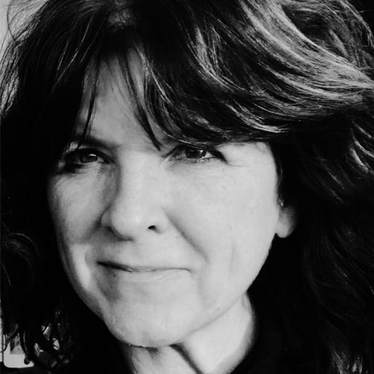An Interview With the Author of "The Ways I Know Her" by Jackie Brennan If you’re like me, “shaggy” is a word you reserve for endearing, docile creatures like Old English Sheepdogs and Scottish Highland cattle. In the beginning of “The Ways I Know Her,” Lisa Couturier uses the word to describe a barn spider. The first confrontation in the essay is between a caterpillar and a black spider—the one with the proportionally longer abdomen writhing as the other injects it with venom. The haunting image becomes an entrée for a hairier subject in the human realm, with her daughter as a focal point. Couturier is a Marylander and a decorated poet and essayist. Her 2005 collection of essays, The Hope of Snakes was praised widely, and her essay “Dark Horse” won a Pushcart Prize in 2012. Her poetry chapbook Animals / Bodies won a New England Poetry Club Chapbook Award for the club’s centennial year in 2015. Couturier has also been recently selected to teach at the Orion Environmental Writers’ Workshop this June. One of Couturier’s calling cards is her keen ability to observe wildness, even in its subtlest cameos. The skill earned her a place alongside the work of many celebrated writers in the prestigious Sowell Collection, and she draws upon the technique incisively in “The Ways I Know Her.” Prior to the May 2018 release of Grace in Darkness, Lisa answered some of my questions about her larger body of work, and this new essay—which has received two Pushcart nominations. Jackie Brennan: How would you compare this essay to your existing work? Lisa Couturier: I was telling a writer friend of mine, Leslie Pietrzyk—a fiction writer and so good with dialogue—that it’s probably the most human-focused essay I’ve written, since I write primarily about the nonhuman (which requires a lot less dialogue!). At the same time, the essay includes material about bats and horses and a spider and a caterpillar, all of which figure into the narrative because the nonhuman world is of course interconnected with the human. There is pain in both worlds. Loss. Hope. I always see parallels. In fact, I don’t differentiate between the two. They inform each other and move together. Though I think we sometimes forget it, the act of giving birth—which comes up as a prominent and pivotal point in this essay—crosses all boundaries regarding human and nonhuman. In this case, the paradox is that the birth of my daughter was treated so “unnaturally” with all the arrogance of supposed human knowledge. And in the end, the way she was born contributed to the loss of a natural defense system. When I think of the essay as a whole, the “questions” really don’t differ much from my existing work. Questions of life—of how we live in the world, of how we are connected, of relationship, of ethics and responsibility, brutality, hope and love—these are the eternal questions for me, questions that play out in the lives of every living creature.
1 Comment
|
Archives
May 2020
Categories |

 RSS Feed
RSS Feed